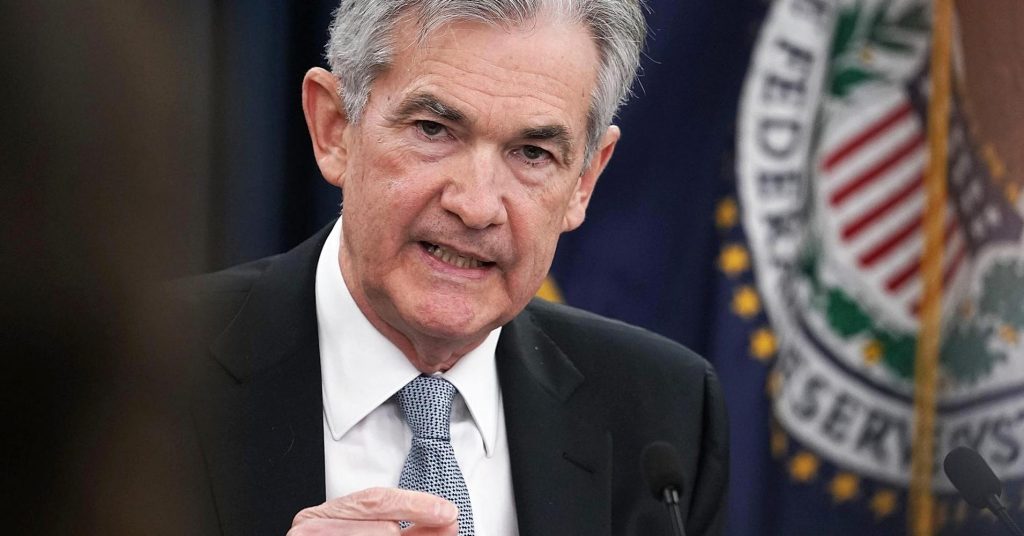
It’s repeatedly been said that to succeed in the stock market, you must be cool, calm and collected.
That’s good advice. Unless you happen to be a human with emotions.
And if you’re one of those (and an investor), this year is likely to have unnerved you, financial experts say.
Take this month, for example: On April 4, the Dow Jones Industrial Average rallied 700 points. Two days later it plunged more than 500 points.
Trying to remain unfazed by your dropping profits is unlikely to work, said Sarah Asebedo, president of the Financial Therapy Association and a certified financial planner.
“Instead of ‘Don’t let emotions get in the way,’ I’d say, ‘The emotions are there. Recognize what they are and then take actions to combat them,'” she said.
Here’s how to emotionally tolerate the stock market’s ups and downs, according to financial therapists.
People carry different “money scripts,” or financial beliefs, said Edward Horwitz, director of financial psychology programs at Heider College of Business at Creighton University.
An individual’s past experiences with money are what shape these attitudes, which then inform their financial decisions and behavior throughout their life.
Perhaps a person watched as half their 401(k) plan savings vanished when the dot-com bubble burst, or witnessed their mother get fired unexpectedly.
“These financial flash points are usually set very young in our life, and we carry them around with us,” Horwitz said. “They cause us to panic when we start to see things on television regarding the movements of the market.”
Unfortunately, these financial beliefs are often maladaptive, Horwitz said.
In other words, they’re a risk to our long-term investing goals. For instance, misplaced anxiety could lead you to believe the next Great Depression is imminent and to sell all your stocks at once.
Therefore, the next time your investments are in the red and you’re feeling uneasy, Horwitz recommends asking yourself: “What happened in my past that’s causing this feeling? When was another time in my life in which I felt this level of anxiety, and what ultimately happened?”
This self-understanding will better equip you, he said, to decipher a real threat to your investments from your own emotional financial baggage.
People are less likely to be dissatisfied with market volatility if they feel in control of their financial life, according to a study published last month in the Journal of Behavioral Science, entitled, Market Volatility and Financial Satisfaction: The Role of Financial Self-Efficacy.
“That doesn’t mean you control all the outcomes, but it’s more from the perspective that ‘No matter what happens, I’ve got this. I have options. I’m not helpless’,” said co-author Asebedo.
So how do you feel empowered when it comes to your money?
“Accept that you have no control over the fact that the market is volatile. That is a natural and normal component of investing,” Asebedo said. “Focus on the list you do have control over.”
She said those include how much you have in cash for short-term expenses, the way your assets are allocated between stocks and bonds, as well as your spending behavior.
“It’s not uncommon for people to hold back on some larger purchases when the market is volatile,” she said. “It may help instill a sense of control and calm.”
You can also channel your anxiety into positive action within other areas of your financial life, she said. “Do you have enough insurance? Is your debt at an appropriate interest rate? When’s the last time you looked at the dwelling coverage on your home?”
“Those are things that are really important that often take a second place to focusing on market volatility,” Asebedo said.
Once you’re comfortable with your investments and understand your time horizon, set a schedule for when you’ll check in with your portfolio.
Some people will want to take a look quarterly, others monthly.
Jon Meyer, a partner at BGM Wealth Partners in Minneapolis, said he reviews his investments just once a year.
“I suggest people play the freeze game,” Meyer said. “Every time you’re going to check the market, say, ‘What am I doing? What am I feeling?’ If you can catch yourself in the moment, you can take a deep breath and calm yourself down.”
If you’ve been unable to look away, this withdrawal will be trying at first, but it will get easier after a month or so, Meyer explained.
“Create the habit of being reflective instead of reflexive,” he said.
More from Investor Toolkit:
The wrong investments are sabotaging your retirement plans
Here’s how to maximize those retirement ‘sweet spot’ years
Here’s how an investor can take advantage of market volatility

